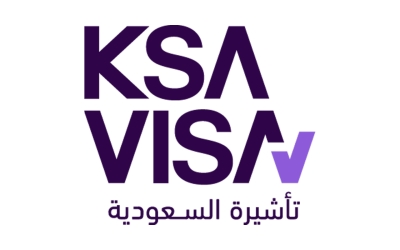If you’ve been researching job opportunities in Saudi Arabia, you’ve likely stumbled across the term “free visa” or “azad visa.” It’s a hot topic in expat forums and job seeker discussions, often sparking curiosity among those looking for flexible work arrangements in the Kingdom. But what exactly is a “free visa”? Does it even exist, or is it just another myth? Let’s dive into the details and set the record straight.
What Is a Free Visa?
First things first: a “free visa” isn’t an official visa category in Saudi Arabia. The term is more of a colloquial expression, commonly used to describe a visa arrangement where the holder is believed to have the freedom to work for any employer, rather than being tied to one specific sponsor, also known as a kafeel.
Under Saudi Arabia’s sponsorship system—known as the kafala system—every foreign worker must have a sponsor. This sponsor, typically an employer, handles the worker’s visa and oversees their stay in the country. Legally, a worker cannot take on jobs outside of their sponsor’s employment.
However, the concept of a “free visa” often refers to scenarios where a sponsor provides a visa but allows the worker to find their own employment independently. In most cases, this comes with a catch: the worker pays the sponsor a fee or shares a portion of their earnings. While it might sound like a dream arrangement, there’s a major red flag—this practice is illegal.
The Reality: Does the Free Visa Exist?
Let’s get straight to the point: no, a legitimate “free visa” does not exist in Saudi Arabia. All work visas are directly tied to a specific sponsor under the kafala system. Working for anyone other than your designated sponsor is a clear violation of Saudi labor laws, and it comes with severe consequences. Think fines, deportation, and even bans on future entry into the country.
The so-called “free visa” is essentially a workaround where a sponsor unofficially allows the worker to operate independently. This arrangement is risky for both parties and can lead to significant legal and financial troubles.
Why the Free Visa Is a Risky Gamble
While the idea of a “free visa” might seem appealing at first glance, it’s a risky path with more pitfalls than benefits. Here’s why you should steer clear:
1. Legal Trouble
Saudi labor laws are crystal clear: you can only work for your sponsor. If you’re caught working for someone else, you’re not just breaking the rules—you’re risking fines, deportation, and even imprisonment. Is it worth jeopardizing your future for short-term convenience?
2. Exploitation Is Common
Sponsors offering “free visas” often exploit workers by charging exorbitant fees or demanding a significant cut of their income. This can leave you in a precarious financial situation, making it harder to save or send money home.
3. Zero Job Security
Without a formal employment contract, you’re on shaky ground. There’s no guarantee of steady work, and you won’t have access to benefits like healthcare, vacation pay, or end-of-service entitlements. Essentially, you’re on your own.
4. Complicated Transfers
If you decide to move to a legitimate employer, the process isn’t straightforward. Transferring sponsorship (naqal kafala) can be a bureaucratic nightmare and often requires your current sponsor’s approval, which may not be easy to obtain.
How to Work in Saudi Arabia the Right Way
Instead of venturing into murky waters with a “free visa,” it’s smarter and safer to follow the legal route. Here’s how:
1. Secure a Job Through Legitimate Channels
Start by applying for positions through reputable recruitment agencies, official job portals, or directly with companies in Saudi Arabia. Avoid dubious offers that promise “free visas” or unverified flexibility.
2. Obtain a Work Visa
Once hired, your employer will sponsor your work visa. This ensures that you’re legally tied to the company and have the protections afforded by Saudi labor laws.
3. Know Your Rights
Take the time to familiarize yourself with the labor laws in Saudi Arabia. Understanding your rights and responsibilities will help you avoid falling into exploitative situations.
4. Follow the Proper Process for Changing Jobs
If you need to switch employers, ensure you follow the legal process for transferring sponsorship. This typically involves obtaining consent from your current sponsor and meeting other regulatory requirements.
Final Thoughts
The idea of a “free visa” might seem like a shortcut to freedom and flexibility, but in reality, it’s a risky gamble that can have long-term repercussions. By choosing the legal route, you’re not just protecting yourself from legal trouble—you’re also setting the stage for a stable and secure future in Saudi Arabia.
Remember, no opportunity is worth compromising your safety, financial stability, or peace of mind. When it comes to working in Saudi Arabia, always opt for transparency, legality, and fairness. After all, it’s better to build your future on a solid foundation than to risk it all for a fleeting promise.

